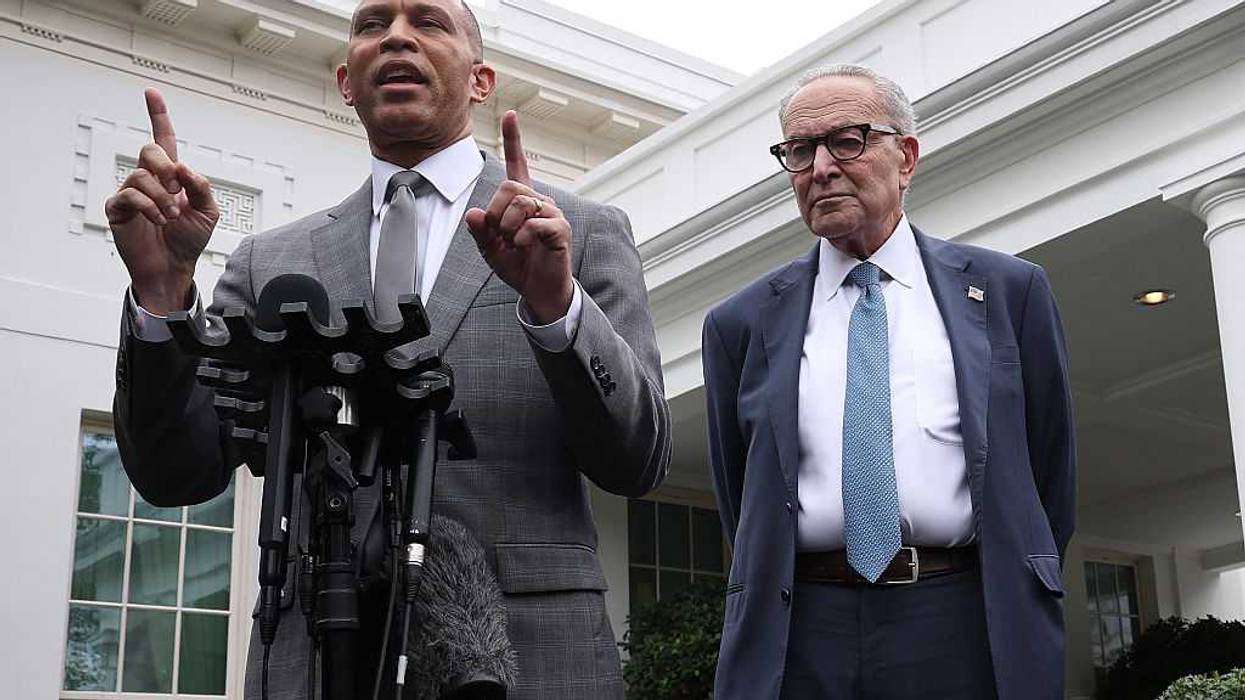Most federal workers are not being paid—as many as 750,000 could be furloughed—including those who are required to remain on the job, like air-traffic controllers or members of the US military.
So-called “mandatory” spending, including Social Security and Medicare payments, are continuing, although checks could be delayed. (President Donald Trump has made sure that construction of his new White House ballroom won’t be affected.)
Were Democrats to vote to keep the government going, what guarantee do they have that Trump will in fact keep the government going?
There have been eight shutdowns since 1990. Trump has now presided over four.
But this shutdown—the one that began Wednesday morning—is radically different.
For one thing, it’s the consequence of a decision made in July by Trump and Senate Republicans to pass Trump’s gigantic “big beautiful bill” (I prefer to call it “big ugly bill”) without any Democratic votes.
They could do that because of an arcane Senate procedure called “reconciliation,” which allowed the big ugly to get through the Senate with just 51 votes rather than the normal 60 votes required to overcome a filibuster.
The final tally was a squeaker. All Senate Democrats opposed the legislation. When three Senate Republicans joined them, Vice President JD Vance was called in to break a tie. Some Republicans bragged that they didn’t need a single Democrat.
The big ugly fundamentally altered the priorities of the United States government. It cut nearly $1 trillion from Medicaid and the Affordable Care Act—with the result that health insurance premiums for tens of millions of Americans will soar starting in January.
The big ugly also cut nutrition assistance and environmental protection, while bulking up immigration enforcement and cutting the taxes of wealthy Americans and big corporations.
Trump and Senate Republicans didn’t need a single Democrat then. But this time, Republicans couldn’t use the arcane reconciliation process to pass a bill to keep the governing going.
Now they needed Senate Democratic votes.
Yet keeping the government going meant keeping all the priorities included in the big ugly bill that all Senate Democrats opposed.
Which is why Senate Democrats refused to sign on unless most of the big ugly’s cuts to Medicaid and the Affordable Care Act were restored, so health insurance premiums won’t soar next year.
Even if Senate Democrats had gotten that concession, the Republican bill to keep the government going would retain all the tax cuts for the wealthy and corporations contained in the big ugly, along with all the cuts in nutrition assistance, and all the increased funding for immigration enforcement.
There’s a deeper irony here.
As a practical matter, the US government has been “shut down” for over eight months, since Trump took office a second time.
Trump and the sycophants surrounding him—such as Russell Vought, director of the Office of Management and Budget, and, before him, Elon Musk and his Department of Government Efficnecy—have had no compunctions about shutting down parts of the government they don’t like—such as US Agency for International Development.
They’ve also fired, laid off, furloughed, or extended buyouts to hundreds of thousands of federal employees doing work they don’t value, such as at the Consumer Financial Protection Bureau and the Corporation for Public Broadcasting. (The federal government is already expected to employ 300,000 fewer workers by December than it did last January.)
They’ve impounded appropriations from Congress for activities they oppose, ranging across the entire federal government.
Wednesday, on the first day of the shutdown, Vought announced that the administration was freezing some $26 billion in funds Congress had appropriated—including $18 billion for New York City infrastructure (home to Senate Minority Leader Chuck Schumer and House Minority Leader Hakeem Jeffries) and $8 billion for environmental projects in 16 states, mostly led by Democrats.
All of this is illegal—it violates the Impoundment Control Act of 1974—but it seems unlikely that courts will act soon enough to prevent the regime from harming vast numbers of Americans.
Vought is also initiating another round of mass layoffs targeting, in his words, “a lot” of government workers.
This is being described by Republicans as “payback” for the Democrats not voting to keep the government going, but evidently nothing stopped Vought from doing mass layoffs and freezing Congress’ appropriations before the shutdown.
In fact, the eagerness of Trump and his lapdogs over the last eight months to disregard the will of Congress and close whatever they want of the government offers another reason why Democrats shouldn’t cave in.
Were Democrats to vote to keep the government going, what guarantee do they have that Trump will in fact keep the government going?
Democrats finally have some bargaining leverage. They should use it.
If tens of millions of Americans lose their health insurance starting in January because they can no longer afford to pay sky-high premiums, Trump and his Republicans will be blamed. Months before the midterms.
It would be Trump’s and his Republicans’ fault anyway—it’s part of their big ugly bill—but this way, in the fight over whether to reopen the government, Americans will have a chance to see Democrats standing up for them.




